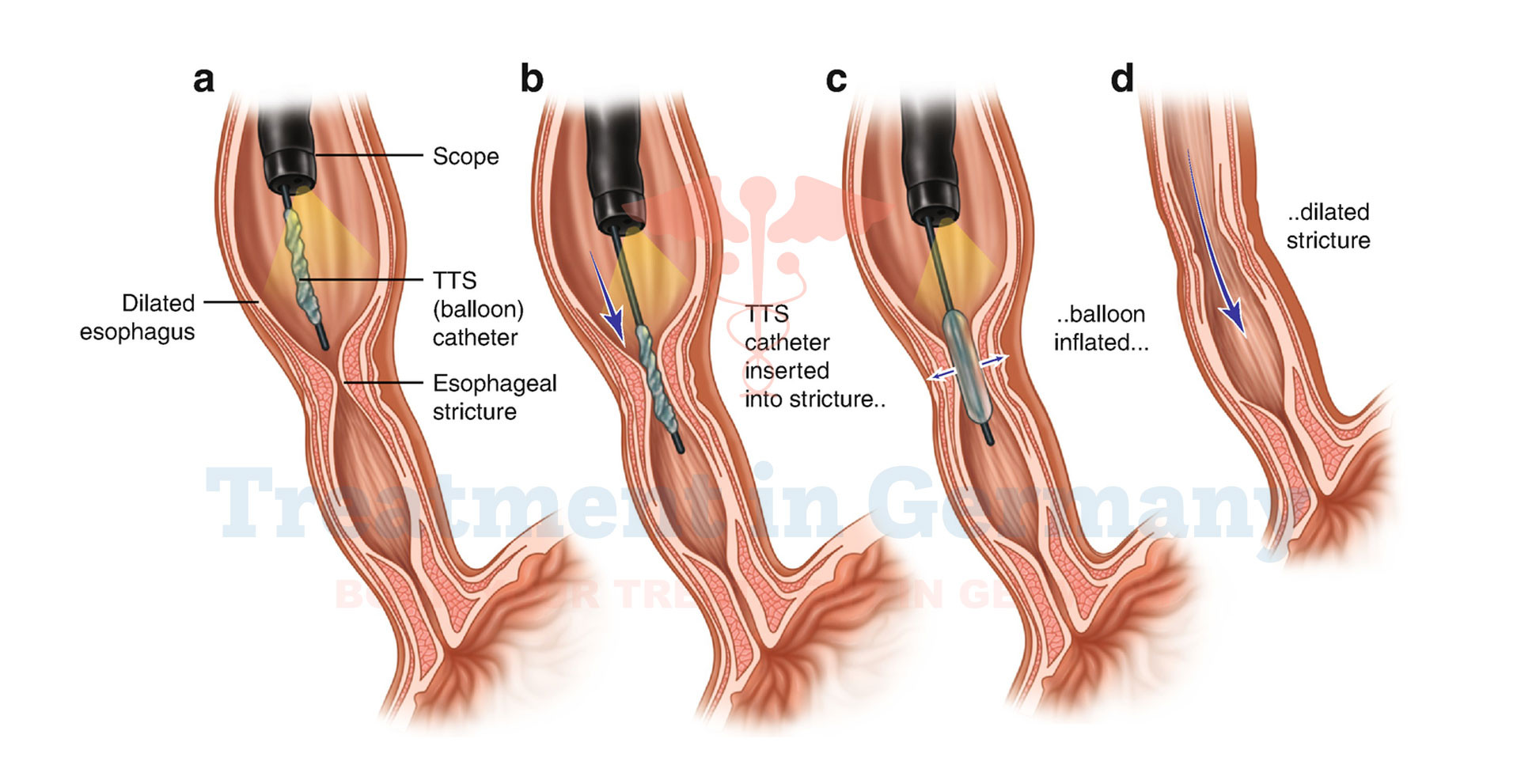What is Oesophageal Stricture?
Oesophageal stricture is a medical condition where the esophagus, the tube that carries food and liquids from the mouth to the stomach, becomes narrowed.
This narrowing can make it difficult for food and liquids to pass through the esophagus, leading to various symptoms and complications.
The condition can be caused by a range of factors including chronic acid reflux (gastroesophageal reflux disease or GERD), esophageal inflammation, injury, or certain medical treatments like radiation.
Side Effects of Oesophageal Stricture
An oesophageal stricture can lead to a number of bothersome and potentially serious side effects, including:
- Difficulty Swallowing: Patients often experience pain or discomfort when swallowing food or liquids. This can make eating and drinking challenging.
- Food Getting Stuck: Some people may feel as though food is getting stuck in their throat or chest.
- Regurgitation: Undigested food may come back up into the mouth, which can be uncomfortable and distressing.
- Weight Loss: Due to difficulty eating, individuals might lose weight unintentionally.
- Chest Pain: Some patients may experience pain or discomfort in the chest area.
- Chronic Cough: Persistent coughing may occur, particularly if food or liquids accidentally enter the airway.
How is Oesophageal Stricture Diagnosed?
Diagnosing an oesophageal stricture typically involves several steps:
- Medical History and Symptoms Review: A healthcare provider will start by discussing your symptoms and medical history.
- Endoscopy: This procedure involves inserting a flexible tube with a camera (an endoscope) into the esophagus to directly visualize the stricture and assess its severity.
- Barium Swallow X-ray: This imaging test requires swallowing a liquid containing barium, which helps highlight the esophagus on X-rays and can reveal narrowing or blockages.
- Esophageal Manometry: This test measures the pressure and function of the esophageal muscles to determine how well they are working.
Potential Treatment of Oesophageal Stricture
Treatment for oesophageal stricture aims to relieve symptoms, improve swallowing, and address the underlying cause. Options include:
- Medication: If acid reflux is the cause, medications such as proton pump inhibitors (PPIs) or H2 blockers may be prescribed to reduce stomach acid and prevent further damage.
- Endoscopic Dilation: This procedure involves stretching the narrowed part of the esophagus using balloons or other devices. It is often effective in relieving symptoms temporarily.
- Esophageal Stenting: A stent (a small mesh tube) may be placed in the esophagus to keep it open, especially if dilation alone is not sufficient.
- Surgical Intervention: In severe cases or when other treatments are not effective, surgery may be needed to remove the stricture or repair the esophagus.
- Dietary Modifications: Patients may be advised to make changes to their diet to make swallowing easier and reduce irritation.
👉 Contact us for further information and receive a complimentary consultation.


.webp)
 (1).webp)

.webp)
 (1).webp)


.webp)
 (1).webp)

.webp)
 (1).webp)
